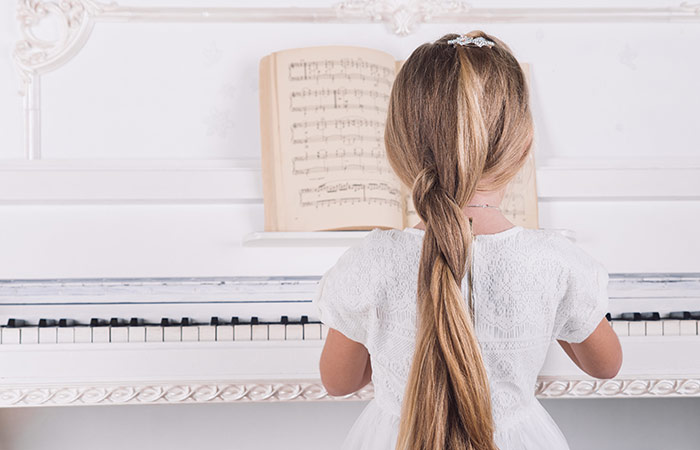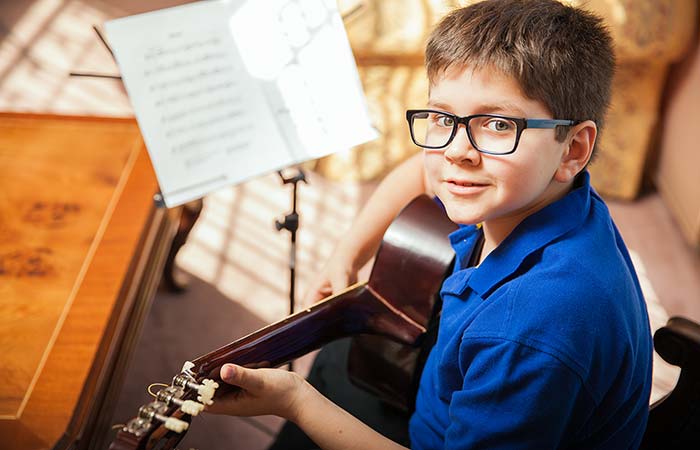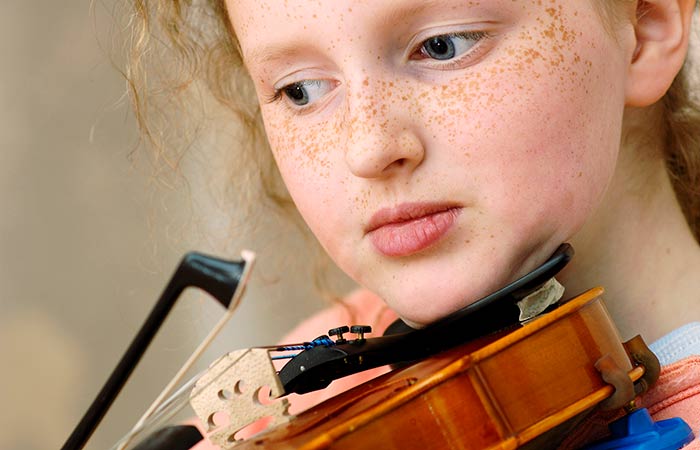The role of the parent and teacher in the child’s early musical training
It doesn’t take rocket science to know that the parent and teacher play a role in the child’s life when it comes to musical training. Your child will and can not train themselves in music or an instrument as the adult can. An adult can find resources and read and plan to learn a new instrument, but your child needs support and guidance in musical training. The parent can and will make a huge difference in the child’s development and so also a good teacher has the ability to fan the flame of love for playing an instrument, even to the extent that they might study music at a later stage or become a star at a young age!
Here is some pointers to look at concerning the role of the parent and the teacher:
• Your child’s musical training is critical during their early forming years of training and learning to play an instrument. What is less known is that the parent’s involvement is usually limited to listening to the music only as opposed to playing an instrument as well.
• ⅛ If the parents and siblings were also involved in playing instruments, the benefits would start to heap up.
• A family of musicians are hard to beat, just think about the Von Trapp family, who literally escaped a war because of their musical prowess. ( The story is told in the movie “The sound of music”. It is a true story, and the whole family settled happily in the USA a few weeks or so after Hitler’s “annexation” of Austria.)
There has been countless research done on this phenomenon of musical family members excelling in music from an early age, and at this stage it is fully accepted as proven irrespective of the social strata of the family involved.
That means that musically inclined families have an advantage above their peers, irrespective of their economic situation.
To recap, let’s look quickly at some of the known benefits of learning music:
• Special brain development
The musical child develops both lobes of the brain, which gives him a distinct advantage over his peers. This results in a better ability to think and reason in the abstract. It also lifts his performance level and his grades are usually higher.
• Comprehension
Your child’s comprehension becomes better in all areas, but receives a specific boost in the area of maths, reading, abstract thought processes, and communication.
• Motor skills
Both the gross and fine motor skills are developed through music.
• Social development
With group interaction and playing, your child will learn from early on the social dynamics of a group that has to work together, and the skills and disciplines needed for that. In real life those skills are a must-have, and the safe environment of a play- group or a small band cannot be overestimated.
• Better grades
All children must do school in one form or another, and it really helps to have an activity which assists with the thought processes and disciplines of school. Especially skills in maths, reading and comprehension, of your child will be enhanced.
• Creativity
Creativity can’t be bought, but it can be caught and nurtured. This is the advantage that musical learning gives the pupil.
• Better self-image
Having the advantage of being able to execute things at a young age( e.g. learning songs, creating music or songs) will give your child the necessary self-confidence needed for self-growth and -development on all levels.
• Expressing yourself better
Musical activities and training has a massive influence to help your child to express him or herself much better than before.
• Enhanced language and linguistic skills
Because music has such a close correlation to language, the development of the skills needed for both, are symbiotic.
• Enhanced musical and reading skills
Reading skills are critically necessary for the reading of musical scores.
How can adults be involved?
Parents:
The Parents’ greatest involvement is usually to find the right teacher for his or her child, irrespective of the distances involved. The parent is the best person to find the right teacher due to obvious reasons, but nothing stops a parent from obtaining advice from a level-headed friend in this regard or a private music school.
Other forms of involvement usually is sitting in on lessons and assisting the young one on all levels on a constant basis.
Teachers:
The involvement of the teacher might seem like a misnomer but this is where parents usually miss the mark. They should plan with the teacher and agree on reasonable deliverables both for the teacher and your child, so that both could be held accountable, and you as the parent could provide the needed materials timeously.
Once the child has started with an instrument studies suggest that parental involvement becomes critical for the child’s perseverance to continue, but seemingly only up to the age of 11. After the child has reached 11 years of age, the child exhibits the skills and discipline to be able to continue on his or her own to a greater or lesser extent.
Of course, should parental involvement continue, it will only help the child, especially if the parent also plays an instrument and does duets with his child.
If the parent goes further and becomes interested in the instrument his child is playing, and does extraordinary input into the learning process, the child’s advancement will be in leaps and bounds! You will see your child developing into a maestro within a short while. Of course should there be a symbiotic relationship with the teacher, the teacher will be keen to add to this development as well. Opportunities for competitions, concerts, and the like will be more than forthcoming!
Some practical tips to assist your child:
• Help your child in choosing the right instrument
Your child’s body type may be a determining factor, as some instruments require specific height measurements e.g. a bassoon, or specific lip-size for woodwinds. If the child is younger than 6, a violin or piano would make a lot of sense. If your child have got long and slender fingers, it could suit the piano very well. (Although I have personally seen maestro’s with short and weird fingers on the piano!)
• Set up a special place at home for your child to play His or her special instrument
You have to take the lead in setting up a special place to play the instrument. The place must be available at all times for the practice of the instrument in question.
• Help your child to keep to a set play time ( not “practice” time)
Good habits are difficult to break! If the child is used to practise (play!) at a specific time a day and this is commended, it will be the easiest thing to keep to a set play time, and the discipline of practise would come naturally.
• Praise your child for each step forward
Always heap lots of praise on the budding musician!
• No negative comments!
And no negative comments, as this is counter-productive to the young one.
• Motivate other family members to positively laud your child’s efforts
The other family members should be similarly inclined to assist the young one.
• Help the child to understand that learning happen in stages and to get a routine
The parent must explain fully to her child that musical learning happens with stops and starts and sometimes making headway is more difficult than at other times. The routine smoothes the uneven rhythm of stops and starts and over time progress is certain.
• Help the child understand that to improve you have to tackle unknown works, and not play the same old songs every time
There can be no gain without pain. To make progress one has to try new and more difficult pieces. And persevere with them until they are conquered.
• Help the young musician with setting practice goals
By setting goals in respect of practice, verifiable milestones can be reached to show continued improvement to yourself and to others. Working consistently on these goals, makes constant discipline a piece of cake.
• Show interest in your child’s music studies and offer encouragement
This is the general disposition you should have all the time. Remember there will come a time when your child will know more of the subject than you, and you will have to graciously bow the knee, and be informed by him.
Musical instruments:
• Musical instruments are delicate and require care – they are real instruments.
• Provide a safe place to keep the instruments. In your hand or in the case!
Caring for the instrument INCLUDES assembling and disassembling!
Fun concerts and programmes
• Have home concerts ever so often. Let all the family members celebrate together.
• Make it a family affair!
• Attend the programmes your child plays in and communicate with your child’s music teacher on a continuous basis.
• Give your child the freedom to decide how far they want to go with their music.
• Never place undue pressure on your child to perform according to your expectations.
The teacher’s style and tempo of teaching
• Ensure that your child’s learning style matches up with the teacher’s teaching style. The pace of working together, amount of homework and even the tone of voice has an influence on the child’s willingness to continue with lessons. If there appears to be something amiss in the tutor-pupil relationship, try to immediately sort it out. If a music school is involved use their counsel and resources to solve the problem and/or mediate. Do not unnecessarily attempt to get a new teacher.
• You as parent must understand the effort, money, and amount of time you might need to invest in the musical development of your child. Set reasonable limits so that you don’t go overboard.
The music industry
• Ensure that your child maintain a healthy and balanced family and social life.
• Learn enough about the business side to the music industry, to be able to make healthy and wise decisions. Never be too greedy. Business people are like elephants, they never forget. Rather have a good reputation for doing a fair deal, or asking fair rates. Consult others in the industry, if you don’t know.
• Do not make any decisions in the music industry without consulting one or more experts. Get to know the music industry locally and if needed internationally. You must also get clued up on cost of musical gear. Keep in mind that at the end of the day your child will make the final decisions in this area, so he should be groomed to eventually take over from your management and guidance, as there will come a time when he will make his or her own independent decisions.
• Do your due diligence on anyone that wants to manage or develop your child. In 80% of the cases there are usually no impressive track record, or in fact any track record! By knowing how the music industry really works, you can navigate it without being taken by people who feast on parents who will do anything for their children!
Funding
Funding is always an issue when helping your child. It is therefor wise to learn about funding early on www.helpmusicians.org.uk devotes a whole website to assist young musicians in this respect. There is no one publication containing details of all the funding opportunities, and in most cases an application has to be made for funding. Helpmusians.org.uk also has a page with a funding wizard for young musicians. You can also borrow funds to buy equipment etc and details about this is also found on the webpages of helpmusicians.org.uk. General health and welfare assistance is also available throughout the whole of the UK and should also be kept in mind by the musical family.





